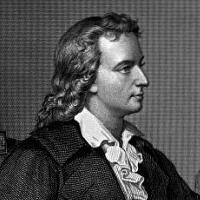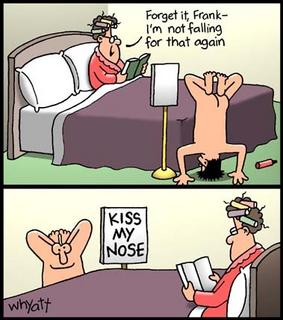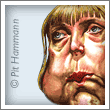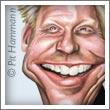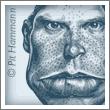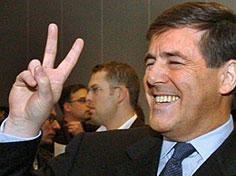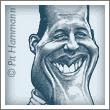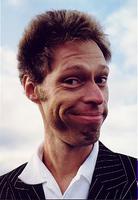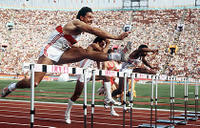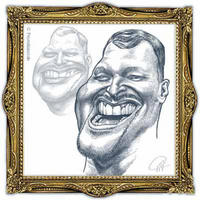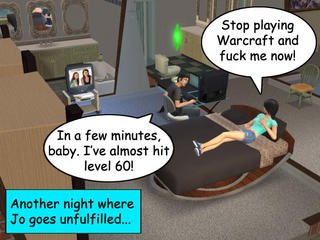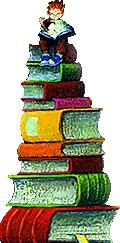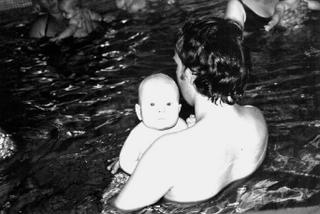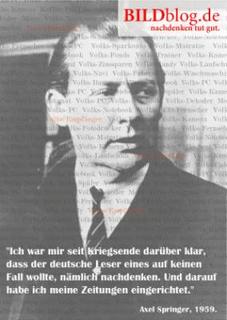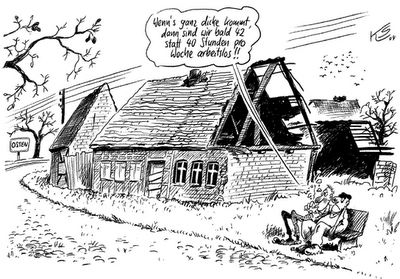Fairy tales - Märchen:Who doesn't know the famous fairy tales of the
Brothers Grimm, like:
Bluebeard , The Bremen Town Musicians, The Elves and the Shoemaker, The Frog Prince, The Golden Goose, Hansel and Grethel, Little Red Riding Hood, The Pied Piper of Hamelin, Rumpelstiltskin, Rapunzel.
You find a summary of the fairy tales in the link of Wikipedia above.
Besides the Brothers Grimm are the authors of a German dictionary of 33 volumes, weighing 84 kg!
There are also the fairy tales of
Wilhelm Hauff, like:
The story of Little Muck, The cold heart, The dwarf Nose, Kalif Storch, The inn in the Spessart
I grew up with a lot of these fairy tales and they have inspired my imagination and my dreams. I can now pass these on to little Emma. I have already started to buy some books, which I loved in my childhood for her. Some of them I only found in second-hand bookshops. Which reminded me of our short-lived book market. I hope Emma will love books like Tina and me.
Soccer - or the miracle of Bern 1954:German people are wild about soccer, and so am I. I was raised with sports as an important part of life. Motion is life, I'm getting nervous when I can't workout for a few days. I had an injury which stopped me for four weeks a short time ago and I was definitely in a bad mood.
I still play soccer almost every week and I enjoy it.
Our father told us about the soccer world championship in Switzerland 1954, where Germany has won
3:2 against Hungary in the final game. This is a myth in Germany and the beginning of being self-confident after the fatal World War II. I have read the book of Fritz Walter the captain of the team and I loved it. Meanwhile Germany is three time world championship winner. See you in
Germany 2006!
Carnival:Well, Germany is not Brazil or Rio de Janeiro respectively. But I think the German Carnival is also on top of the list. My sister Katharina lives in Cologne and I'm always there when
Carnival starts, during the last seven or eight years. You have to be disguised and people are very inventive about it.
The whole city is on it's feet, aside from some people who flee, because they hate Carnival: Oh,
nit für Kooche , Lück, bliev ich Karneval he. That's a song of BAP, a Cologne band.
This reminds me of the Carnival songs in Cologne. I know some of them by heart, although this is difficult because of the strong dialect.
Martin Luther:I think he will be good for my list of famous Germans. I had confirmation in the year of his 500th birthday in 1983.
Made in Germany:An indication of origin and a quality term. The marking of goods "Made in Germany" applies to numerous industries as proof of particularly high product quality for decades. It emerged in a British law, the Merchandise Marks act of 1887. Purpose of this law was to protect British consumers against deceptions about the origin of German goods. In the course of time however the originally negatively occupied term „Made in Germany changed itself into it's opposite and developed to a special quality character.
For this reason „Made is in Germany“ today is a geographical origin and quality marking for the goods manufactured in Germany. It is protected nationally and internationally.
Nuremberg:That's my hometown and of course I am prejudiced against the city I live in and I love.
Nuremberg is the second largest city in Bavaria with about 500.000 inhabitants. It has a long and sometimes sad history.
Nuremberg was first mentioned in an imperial document in 1050. The Staufer Emperors extended the castle which had been built on a sandstone hill ("Nuorenberc" = rocky hill) into an imperial place. With their support Nuremberg flourished as a centre of trade in the Middle Ages and was granted the status of a Free Imperial City. By the 15th century Nuremberg was extremely wealthy and provided an ideal climate for the arts and sciences. Following the Thirty Years War, however, the city fell into decline.
In 1806 it became part of the Kingdom of Bavaria and flourished once again, this time as an industrial centre.
The darkest chapter in Nuremberg's history was ushered in when the Nazi chose it as the site of their Party Rallies and in the 1930's it became a symbol of National Socialism. The old town centre was reduced to rubble in 1945 as a result of Allied air raids. Thanks to careful rebuilding, however, today's vistitors are again able to sense the atmosphere of historic Nuremberg.
I like living in a modern city with all the possibilities for spare time activities. Like museums, galleries, parks, sports grounds, pubs, shopping centres, concerts et cetera. Nuremberg is also surrounded by lakes (e.g. the
Fränkische Seenland), nature (e.g. the Fränkische Schweiz, see links, oh how I love it), you can hop on trains and airplanes, you can go skiing in the Alpes, which are not far away...................
I also like the people and the special Franconian dialect in town:
"Allmächt Reiner, an Farbfernseher von Metz mechert i aa".
So, come on in and find out!
To be continued.


